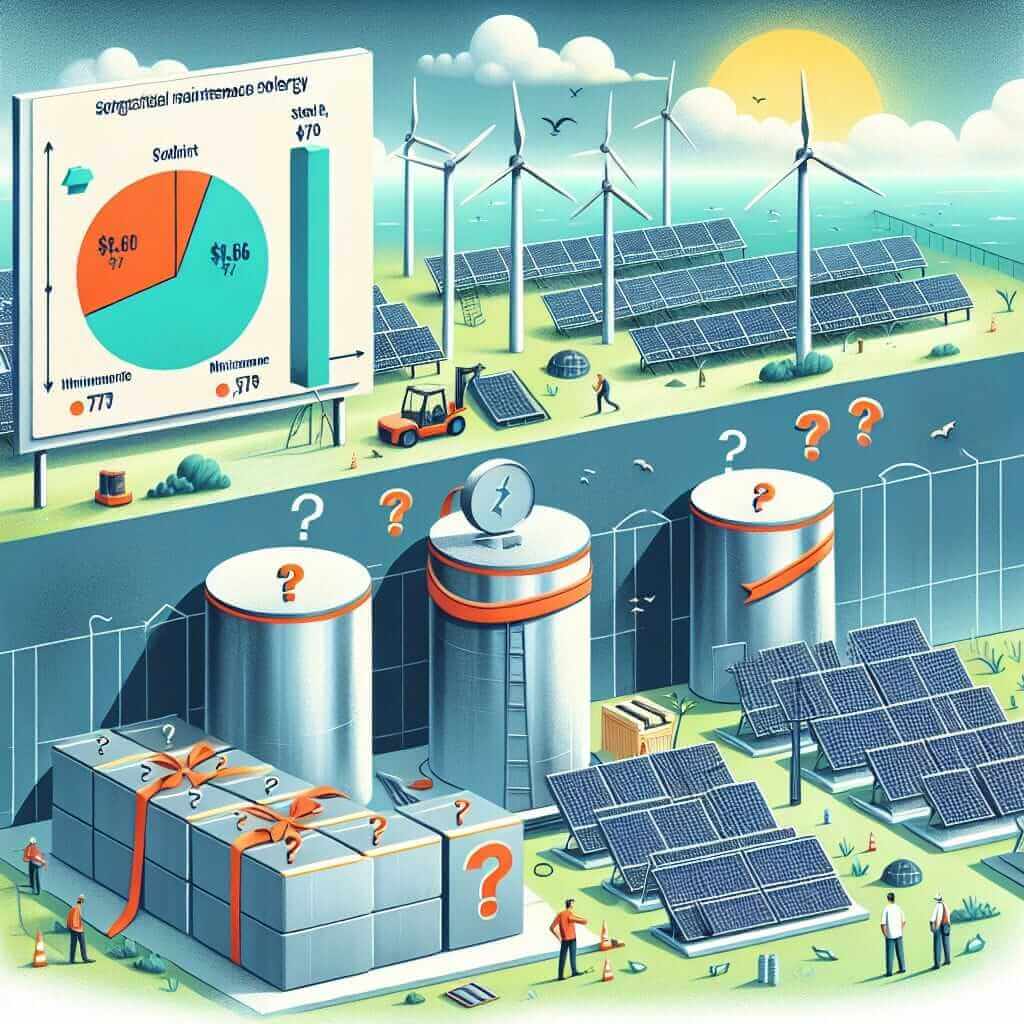The Reading section of the IELTS exam often involves passages on various topics, including technological advancements, environmental issues, and their socioeconomic impacts. Understanding these themes provides test-takers with the knowledge needed to answer questions more accurately. A recurrent and relevant topic in recent years has been the impact of renewable energy on economic development. Given the growing global emphasis on sustainability and climate change mitigation, this topic’s prevalence in IELTS exams has only increased. By thoroughly preparing for this theme, candidates can better anticipate and tackle similar reading passages in their actual IELTS exams.
Nội dung bài viết
- Main Content
- A. Sample IELTS Reading Passage
- B. Sample IELTS Reading Questions
- 1. Multiple Choice
- 2. True/False/Not Given
- 3. Matching Headings
- 4. Sentence Completion
- C. Answer Key and Detailed Explanation
- Multiple Choice
- True/False/Not Given
- Matching Headings
- Sentence Completion
- D. Common Mistakes in this Type of Question
- E. Vocabulary
- F. Grammar
- Conclusion
- Tips for High Reading Scores in IELTS
Main Content
A. Sample IELTS Reading Passage
Below is a complete IELTS Reading passage tailored to the “Medium Text” standard. This passage aligns well with the topic “How does renewable energy adoption influence economic development?”
Passage Title: The Economic Impact of Renewable Energy Adoption
The increasing adoption of renewable energy sources such as solar, wind, and hydroelectric power has profound implications for economic development globally. Nations shifting away from fossil fuels are not only safeguarding the environment but are also experiencing significant economic benefits.
Investments in renewable energy can stimulate job creation. The renewable energy sector employs more people per unit of electricity output compared to the fossil fuel industry. The construction, installation, and maintenance of renewable energy infrastructures, such as solar panels and wind turbines, create a myriad of employment opportunities. This job creation extends to ancillary industries, including manufacturing and services.
 Renewable Energy Sources
Renewable Energy Sources
Countries that invest in renewable energy also reduce their dependence on imported fossil fuels. This energy independence can enhance national security and economic stability. The volatility of global oil prices can have a detrimental impact on economies reliant on fossil fuel imports. By harnessing local renewable energy resources, countries can avoid the economic shocks associated with fluctuating oil prices.
Moreover, the adoption of renewable energy stimulates technological innovation. As nations invest in renewable technologies, they foster a culture of research and development (R&D). This can lead to breakthroughs in energy storage, efficiency, and grid management, further driving economic growth.
Renewable energy also offers financial incentives in the form of government subsidies and tax incentives. These incentives reduce the initial investment costs, making renewable projects more attractive to businesses and investors. Over time, as technologies mature and economies of scale are achieved, the cost of renewable energy continues to decline, making it increasingly competitive with traditional energy sources.
In conclusion, the adoption of renewable energy has far-reaching positive impacts on economic development. Through job creation, energy independence, technological advancements, and cost reductions, renewable energy holds the promise of a prosperous and sustainable future.
B. Sample IELTS Reading Questions
1. Multiple Choice
-
According to the passage, which of the following is a direct result of investing in renewable energy?
a) Increased import of fossil fuels
b) Job creation
c) Economic instability
d) Dependence on global oil prices -
What are some benefits mentioned for countries that adopt renewable energy?
a) Economic instability
b) Energy independence
c) Decreased R&D investment
d) Economic shocks from oil price fluctuations
2. True/False/Not Given
- The passage suggests that renewable energy requires less labor than fossil fuels. True / False / Not Given
- Renewable energy adoption can lead to technological innovations. True / False / Not Given
3. Matching Headings
Match the headings with the appropriate paragraphs (A-E):
A. Financial Incentives and Costs
B. Job Creation and Employment Opportunities
C. Technological Innovation and R&D
D. Energy Independence and National Security
E. Conclusion: Economic Benefits of Renewable Energy Adoption
4. Sentence Completion
Complete the sentences below with words taken from the reading passage:
- Renewable energy projects are made more attractive to investors because of government __ and __.
- Economic shocks from __ oil prices can be avoided by harnessing local renewable energy resources.
C. Answer Key and Detailed Explanation
Multiple Choice
- b) Job creation
- Explanation: The passage states that “The construction, installation, and maintenance of renewable energy infrastructures create a myriad of employment opportunities.”
- b) Energy independence
- Explanation: The passage explains that “Countries that invest in renewable energy reduce their dependence on imported fossil fuels.”
True/False/Not Given
- False
- Explanation: The passage states the opposite: “The renewable energy sector employs more people per unit of electricity output compared to the fossil fuel industry.”
- True
- Explanation: The passage notes, “As nations invest in renewable technologies, they foster a culture of research and development (R&D).”
Matching Headings
A. Financial Incentives and Costs – Paragraph 4
B. Job Creation and Employment Opportunities – Paragraph 2
C. Technological Innovation and R&D – Paragraph 3
D. Energy Independence and National Security – Paragraph 2
E. Conclusion: Economic Benefits of Renewable Energy Adoption – Paragraph 5
Sentence Completion
- subsidies, tax incentives
- Explanation: The passage mentions, “Renewable energy also offers financial incentives in the form of government subsidies and tax incentives.”
- fluctuating
- Explanation: The passage explains that “countries can avoid the economic shocks associated with fluctuating oil prices” by harnessing local renewable energy resources.
D. Common Mistakes in this Type of Question
- Skimming Instead of Detailed Reading: Many students skim the passage too quickly and miss key details, leading to incorrect answers.
- Misinterpreting Keywords: Misunderstanding or confusing keywords can lead to selecting the wrong options.
- Not Identifying Question Types: Each question type requires a specific approach. Not recognizing these can lead to inefficiencies and errors.
E. Vocabulary
Here are some challenging words from the passage, including their part of speech, phonetic transcription, and meanings:
- Implications (noun) – /ˌɪmplɪˈkeɪʃ(ə)nz/: consequences or effects that may occur as a result of an action or decision.
- Volatility (noun) – /ˌvɒləˈtɪlɪti/: liability to change rapidly and unpredictably, especially for the worse.
- Incentives (noun) – /ɪnˈsɛntɪvz/: things that motivate or encourage someone to do something.
F. Grammar
Relative Clauses:
- Type: Defining relative clause
- Formula: [Noun + relative pronoun + clause]
- Example: “Nations that invest in renewable technologies foster a culture of R&D.”
Conclusion
Preparing for the IELTS Reading section requires an understanding of various topics, including how renewable energy adoption influences economic development. Thoroughly reading passages, understanding key concepts, and practicing different question types will arm candidates with the tools needed to excel. By exploring themes like renewable energy, test-takers can anticipate similar topics and improve their reading comprehension skills.
Tips for High Reading Scores in IELTS
- Practice Regularly: Regular reading practice in various topics can enhance comprehension skills.
- Time Management: Learn to manage your time effectively during the exam to avoid rushing.
- Understand Question Types: Familiarize yourself with different question types and their strategies.
- Expand Vocabulary: Continually build your vocabulary to better understand and interpret passages.
- Detailed Reading: Focus on understanding passages in-depth to answer questions accurately.


